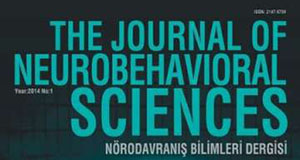
The results of the research entitled “Dynamics of Retrospective Timing” led by Üsküdar University Faculty of Medicine Psychiatry and Hospital Department, Psychiatry Department were published. The most accurate anticipations are obtained in estimating 15-min long events.
In the survey, which investigated retrospective timing performance with 24,500 participants in the time frame (5-90 minutes), participants were asked to decide how long it took them to fill out a series of questionnaires to fill out at their own pace. Since participants had shorter and longer durations of more than 15 minutes, respectively, they overestimated and underestimated the duration of the survey times as more and less. In addition, the most accurate predictions were obtained in estimating the events of 15 minutes in length.

The researchers among whom there are Gökben Hızlı Sayar and Assoc. Prof. Hüseyin Ünübol, found that as time periods changed, the variability between subjects in time estimates decreased exponentially as a function of time, reaching sub-asymptomacy (asymptote) after 30 minutes. In the study published in Psychonomic Bulletin & Review, a significant portion of participants showed whole number bias by rounding their time estimates to multiples of 5 minutes.
Scope of the research on the dynamics of retrospective timing
While most intervals were tested over multiple trials in timing studies, participants were explicitly asked to pay attention to time and were asked to focus on prospective timing estimates.
Summarizing the research, Üsküdar University Faculty of Medicine Psychiatry and Hospital Department Psychiatrist and Advisor to the Rector Prof. Gökben Hızlı Sayar said;
"Our current understanding of interval timing is primarily based on prospective timing. However, most real-life temporal judgments are made without prior knowledge in such a way that the duration of events will need to be estimated (i.e., retrospective timing). In the current study, our results provide evidence for systematic biases in retrospective temporal judgments and show that variability in retrospective timing is relatively higher for shorter periods of time. (for example, < 30 minutes). The primary findings collected from our dataset were replicated based on secondary analyses of another dataset (Blursday). This study constitutes the most comprehensive study of retrospective timing regarding the time interval and sample size tested.".




